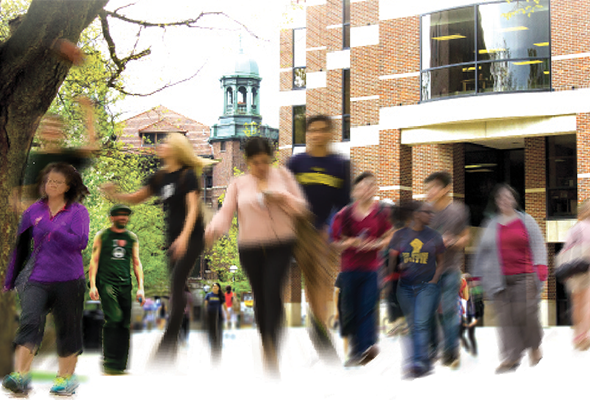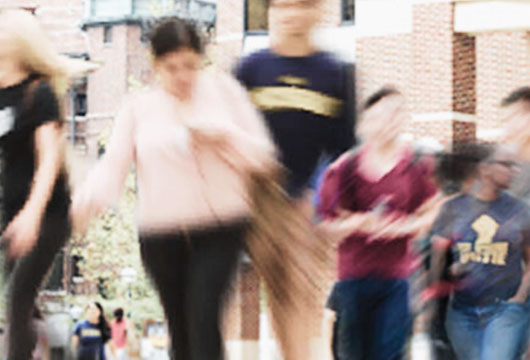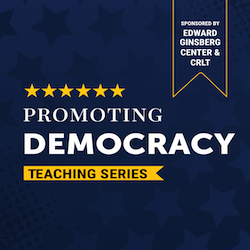In recent years, several colleges and universities have begun to include students more actively in faculty professional development opportunities, often engaging students to consult with faculty about both course planning and implementation. In a recent book on Engaging Students as Partners in Learning and Teaching, Alison Cook-Sather, Catherine Bovill, and Peter Felten delineate a range of positive outcomes of such student-faculty partnerships to improve teaching and learning. As these authors argue, “Students have insights into teaching and learning that can make [instructors’] practice more engaging, effective, and rigorous” (2014).

This year, as part of our 2018 Inclusive Teaching @ Michigan series (April 30 - May 4), CRLT will pilot two programs that include undergraduate student consultants as key partners for faculty who wish to think about course design in collaboration with students. These include:
-
Ask an Undergrad: Consulting with Students about Your Course Materials. In this session, faculty can share course materials in draft (e.g., a syllabus, a writing assignment, a set of guidelines, or a slide deck for a lecture) and consult with a small group of undergraduates as well as a CRLT consultant. Whether you’re interested in giving some new course materials a ‘test run’ or you know you want to revise existing materials but are not sure how, this session can offer valuable feedback centered on student insights. This session will be available at 4 different time slots on May 2nd and 3rd. Learn more and register at this link.
-
Responding to Tumultuous Events: Practice Teaching. This session continues the themes of the “Teaching in Tumultuous Times” workshop that CRLT offered multiple times during the 2017-2018 academic year (and which we will reprise on May 1: see below). We’ve heard from many instructors that they would appreciate an opportunity to practice framing and even facilitating brief discussions about campus incidents or world events that involve hatred, bias, or discrimination. Such events are likely to be disruptive to student learning, and are therefore important for instructors to acknowledge, even if there is not always a clear connection to course content. This session is designed particularly with STEM instructors in mind, though faculty across the disciplines who want a chance to practice with real students and receive feedback from them are welcome to participate. Learn more and register at this link.
At the beginning of this year's Inclusive Teaching @ Michigan week, we will also offer encore sessions of three of our most popular workshops from Winter term (open to both faculty and GSIs):
-
Implementing Inclusive Teaching Principles in Your Courses (4/30, 10:30am-12:30pm)
-
Teaching in Tumultuous Times: Making Choices About How to Address the World Beyond Your Classroom (5/1, 10am-12pm)
-
Teaching about Race & Ethnicity in Predominantly White Classrooms (5/1, 2pm-4pm)
Click on the titles above for further information and registration details. Faculty are welcome to participate in all of the week’s events or just one. We’re looking forward to another great week of professional development in inclusive teaching for instructors across U-M!
Source Cited: Cook-Sather, A., Bovill, C., & Felten, P. (2014) Engaging Students as Partners in Learning and Teaching: A Guide for Faculty. Jossey Bass: San Francisco.
- Log in to post comments
- 59 views







